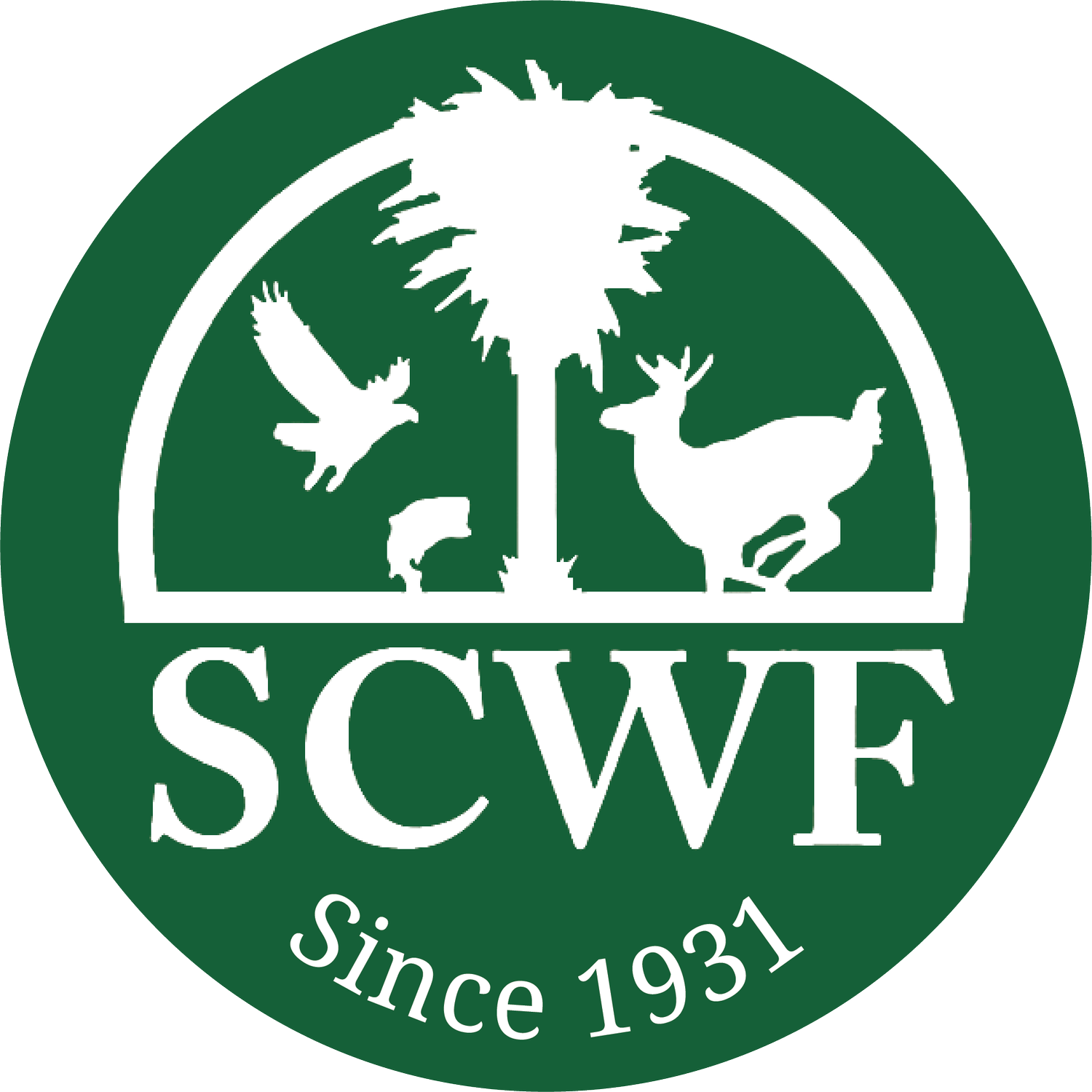STATE ISSUE SUMMARY
Conservation Lobby Day participants on the S.C. State House steps.
The South Carolina Wildlife Federation (SCWF) works with legislators to protect precious wildlife habitat and ensure that sound scientific data is used to make decisions which affect wildlife.
Below is a summary of some of the issues we have followed and advocated for or against at the South Carolina State House:
South Carolina Conservation Bank FUNDING
The South Carolina Conservation Bank is the most important tool the state has to ensure South Carolina’s most iconic and precious natural resources are preserved and protected for future generations. Originally established by the General Assembly in 2002 and funded in 2004, the Bank has helped preserve some 300,000 acres of threatened lands in our state since its inception by providing funding for fee simple land purchases and conservation easements.
Upstate SC Waterfall. Photo by Amanda Johnson.
In 2018, SCWF and its conservation partners successfully advocated for the re-authorization of the Conservation Bank which was due to sunset on June 30, 2018. The re-authorization bill removed the historically dedicated deed stamp funding for the Bank so funds for the Bank’s use will now be appropriated through the annual state budgeting process in the General Assembly. The bill also made the Bank a permanent state agency for the first time ever meaning it will not have to be re-authorized by the Legislature in future years.
SCWF will continue to advocate for increased funding for the Conservation Bank and will continue to support the Bank’s critical mission of helping preserve wildlife habitats, natural areas, historical sites, sites of unique ecological significance, forestlands, farmlands, watersheds, open space, and urban parks throughout our state.
tegu lizards and other invasive species
The Legislature passed legislation in 2021 that put in place strict regulations regarding the possession, ownership and sale of Tegu Lizards as well as regulations which identify and regulate other non-native and invasive species. SCWF supported this legislation and will continue to support protections for SC’s native wildlife from invasive species.
Bottlenose dolphin. Photo by Laurie Walden
Offshore Oil and Gas Exploration and Drilling
While primarily a federal issue, Governor McMaster and SC’s Attorney General Alan Wilson have both openly opposed off-shore oil and gas exploration and drilling off the South Carolina coast. In the Legislature, both opponents and supporters of offshore exploration and drilling have previously filed bills that would make it easier or harder, respectively, for companies engaged in exploration and drilling to locate support infrastructure in South Carolina. SCWF will continue to monitor this issue at both the state and federal levels, and stand ready to take action in opposition to any future attempts at offshore exploration and drilling.
Plastic Bags, Auxiliary Containers and Home Rule
Legislation has been introduced over the past couple of years that would prevent local governmental bodies from passing ordinances to regulate the use of single-use plastic bags and other auxiliary containers in their respective communities. Numerous cities, towns and counties in South Carolina have already adopted such local ordinances in an effort to control the explosion of plastic waste that has proved to be extremely harmful to wildlife. SCWF has opposed legislation such as this that goes against our state’s longstanding Home Rule doctrine and that hamstrings local governments from acting in the best interests of their citizens by finding local solutions to local problems when they arise.
SC Floodwater Commission
Governor McMaster created by executive order the SC Floodwater Commission in order to initiate a state-wide effort designed to mitigate the increasing impact of floods within the state. The commission is comprised of state agency heads, experts in hydrology, climate change and others with particular expertise in flood control and mitigation.
SCWF Executive Director, Sara Green, and SCWF Government Relations Manager, Trip King, stand with Governor Henry McMaster after he signed the Energy Freedom Act on May 16, 2019.
Energy Reform & Solar growth
H.3659, The Energy Freedom Act, received final approval by the General Assembly on May 9, 2019, the last day of the Legislative session. It received unanimous approval in both the Senate and the House of Representatives and was signed by Governor McMaster on May 16. This a was a dramatic turnaround from previous years when efforts to pass energy reform legislation that expanded solar energy production and consumer access was met with resistance. SCWF supported the efforts to pass this comprehensive energy reform package that eliminates the current net-metering cap for roof top solar users and creates a more competitive energy marketplace which will allow residential and business consumers more affordable clean energy choices in the future.

![[Image Description] Conservation Lobby Day participants stand on the S.C. State House steps.](https://images.squarespace-cdn.com/content/v1/5804eb039f74569692067655/1518529001650-FZYY7IPZ2J08USIWEJTR/Lobby+Day.jpg)
![Photo by Amanda Johnson[Image Description] A view of a waterfall looking up.](https://images.squarespace-cdn.com/content/v1/5804eb039f74569692067655/1491490945191-BMKI74V7PAX85QTC0EZ0/image-asset.jpeg)
![Photo by Laurie Walden[Image Description] A dophin’s tale halfway out of the water.](https://images.squarespace-cdn.com/content/v1/5804eb039f74569692067655/1518533018389-F23GZAOQBQL85QCSF1EO/Dolphin+Slapping+Its+Tail+by+Laurie+Walden.jpg)
